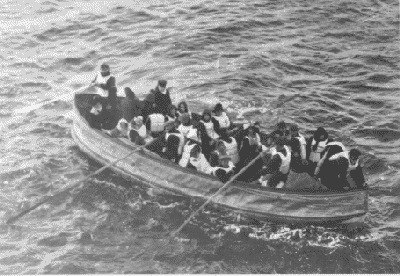Compulsory Voting – the Lifeboat Analogy
You are one of twenty two people who are stranded on a life boat after the pleasure cruiser sinks.
Yes there is enough room and supplies for all of you for the immediate future so no decision has to be made as to who will be thrown overboard.
However there is one problem: the skipper / navigator has gone down with the ship and no one actually knows which direction to row to ultimately reach the shipping lanes.
Even though no one knows for sure, eleven members of those on board have formulated ideas. Some think they can operate the sextant which has been saved, some believe they can tell which way to go by the currents, some by the sun, and some by the prevailing winds. The problem is that there is no general consensus from all these theories, and existing provisions will only allow for one attempt. 
It is ultimately decided that a vote has to be taken to decide whose theory will be accepted to decide the course to follow. Because the decision may well result in the life or death of everyone on board it is decided that everyone will have the right to vote.
Even though you yourself have come to no theory, you decide to vote with one person who, to you, gives the general impression of being slightly more astute and knowledgeable than the other amateur navigators.
This leaves the remaining ten occupants. Not only do they have no idea which is the best direction for rescue, they also share equal faith in all of those who have suggested theories. Therefore because they fear their vote may lead to the wrong decision, they have decided to abstain from voting.
Will you allow the ten to abstain form voting or will you insist that, because lives are at risk, they must partake in the vote?
|

